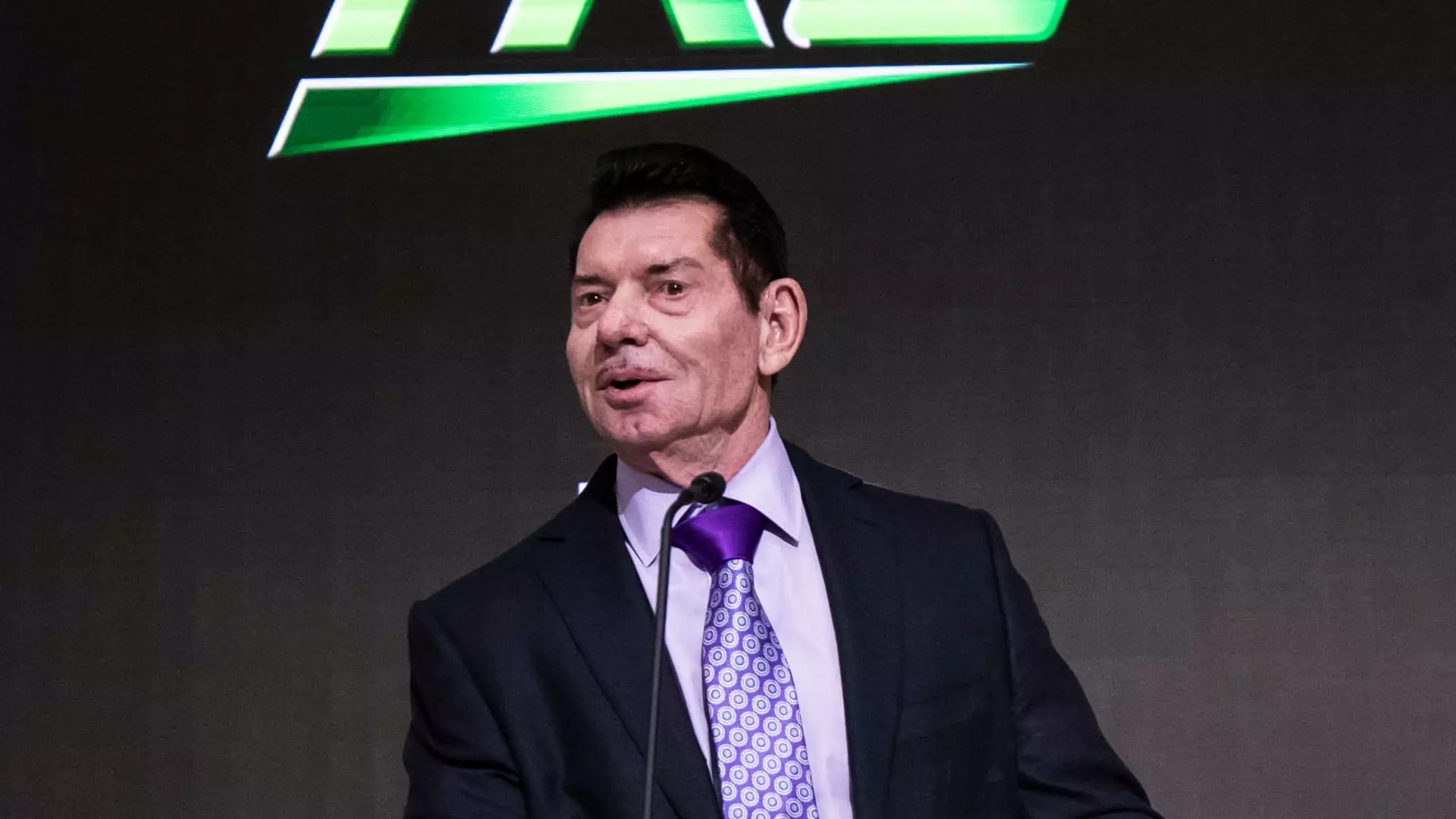The recent announcement by the Securities and Exchange Commission (SEC) surrounding Vince McMahon, the former chief executive officer of the World Wrestling Entertainment (WWE), marks a significant moment in the wrestling entertainment industry and corporate governance at large. McMahon’s alleged violations of federal securities laws stem from a failure to disclose crucial financial settlements totaling approximately $10.5 million to two former employees, revealing a troubling narrative of accountability—or rather, the lack thereof—within corporate frameworks. As the wrestling world takes pause, it’s essential to dissect the implications of McMahon’s actions and the resulting charges.
The core issue lies in McMahon’s failure to inform the WWE board, legal department, accountants, or auditors regarding these settlement agreements. According to the SEC, this oversight not only undermined WWE’s internal accounting controls but also led to significant misstatements in the company’s financial disclosures for the fiscal years 2018 and 2021. The SEC reported that McMahon’s omissions resulted in an overstated net income for WWE, with a staggering 8% inflation for 2018 and a 1.7% increase for 2021. Such discrepancies are not merely minor miscalculations; they represent a breach of trust that could have far-reaching consequences for stockholders and corporate integrity.
As a result of these violations, McMahon has consented to an administrative settlement, agreeing to pay a $400,000 civil penalty and reimburse WWE an additional $1.33 million. Yet, the repercussions do not merely end with the financial settlements. The implications of this case may ripple through WWE’s corporate landscape, particularly as the company recently merged with Endeavor Group, creating the TKO Group Holdings. With shares now publicly traded on the New York Stock Exchange, the need for transparency and accountability becomes even more critical.
The processes initiated by the SEC expose vulnerabilities within the company’s governance structure that demand thorough scrutiny. For instance, the SEC’s findings indicate that McMahon was in receipt of incentive-based compensation and profits derived from WWE stock sales during the 12-month window following the filing of the restated financial statements. This raises ethical concerns about the intersection of personal gain and corporate governance, prompting the need for a reassessment of oversight mechanisms within the organization.
Beyond the financial misconduct, the motives behind McMahon’s actions become a point of fierce scrutiny. Among the settlements is an agreement with a former WWE employee requiring him to pay $3 million in return for her silence concerning a relationship with him and potential legal claims. The unfolding legal drama became even more sensational when allegations from former WWE employee Janel Grant surfaced. She accused McMahon of sexual assault and human trafficking, alongside claims that he had only partially compensated her under a nondisclosure agreement. Given these accusations, the lines between professional and personal accountability blur considerably.
Moreover, another undisclosed agreement involved a former independent contractor who claimed that McMahon blacklisted her after she declined his sexual advances. Such serious charges would raise the stakes significantly, not just for McMahon but for the reputation of the WWE itself.
After several investigations spanning nearly three years, McMahon’s remarks to the media highlight his desire to close this chapter. He described the investigations as being misaligned with reality, dubbing the entire series of events as a mere reaction to minor accounting mishaps. However, the implications of the SEC’s findings suggest otherwise. The nature of these violations and the surrounding allegations point to systemic issues within the organizational culture, raising questions around whether accountability is valued in the high-stakes world of professional wrestling and entertainment.
Ultimately, while McMahon may see this as a closed case, the ramifications of his actions will serve as a cautionary tale for corporate governance across industries. The SEC’s insistence on transparency demonstrates a firm commitment to restore trust in corporate America, serving as a reminder that accountability must always remain at the forefront of any successful organization, no matter how influential its figureheads may be.



Leave a Reply